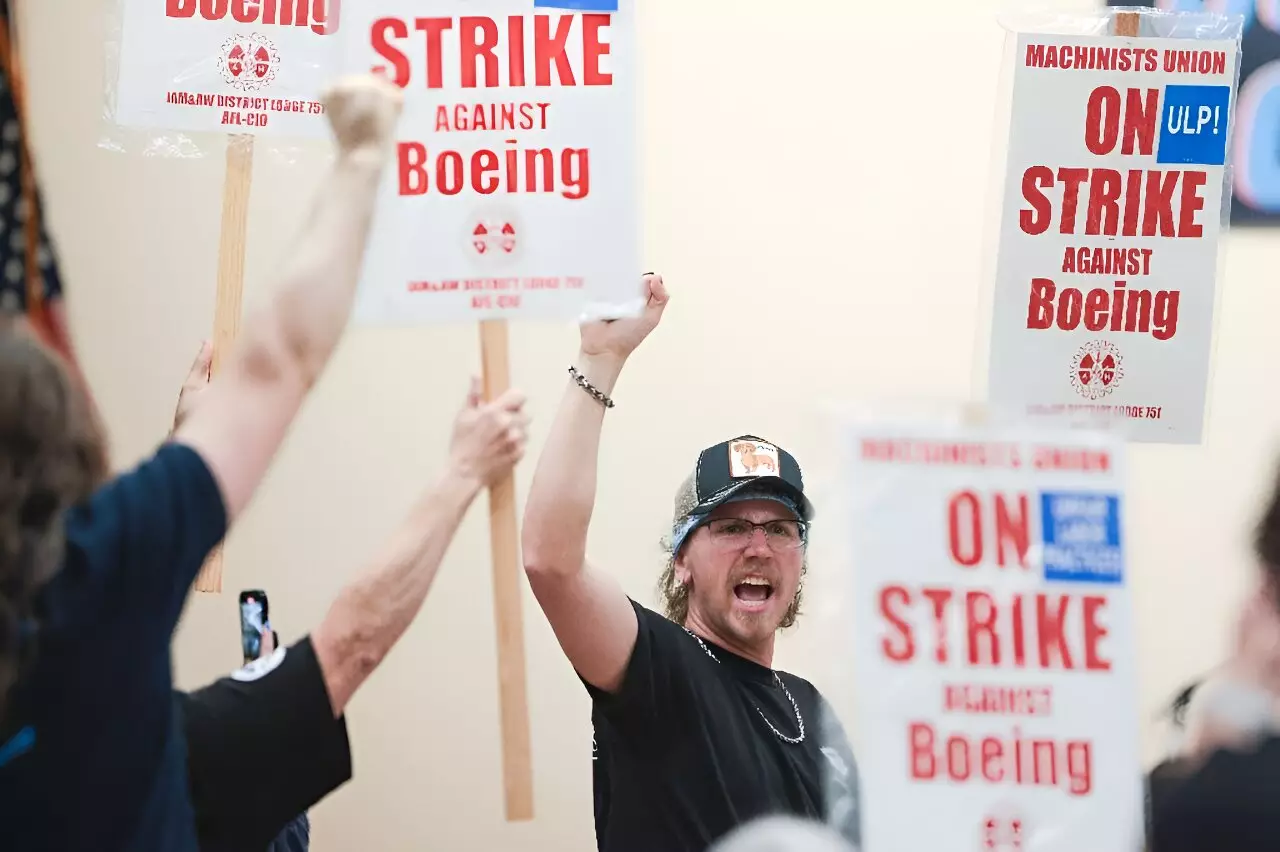In a significant resurgence of labor activism, Boeing factory workers have initiated a strike, the first in 16 years, in response to a proposed contract deemed insufficient by union members. The International Association of Machinists and Aerospace Workers (IAM-District 751) announced on Saturday that discussions would recommence with federal mediation on Tuesday, following a staggering rejection of Boeing’s contract offer. This striking action, driven by a clear demand for wage increases, reflects broader tensions in the labor market as employees increasingly seek fair compensation amid financial constraints.
Union leaders reported that a remarkable 94.6 percent of workers voted against Boeing’s tentative contract. Similarly, an overwhelming 96 percent expressed their willingness to strike, indicating a solid front among the workers in the Seattle area. The union’s call for action emphasizes the need for a united stance to secure better wages, particularly after years of stagnation. IAM-District 751’s emphatic statement — “Now is the moment to rise” — highlights not just a fight for better wages but a reinvigoration of solidarity among workers, resonating with labor movements across the nation.
Boeing, under new leadership from CEO Kelly Ortberg, has expressed eagerness to return to negotiations, hoping that a proposed 25 percent wage increase over four years along with commitments to invest in the local economy would satisfy workers. However, the reality on the ground tells a different story. Many rank-and-file employees view these proposals as insufficient, especially in the context of the rising cost of living and ongoing inflationary pressures. The strike has temporarily halted operations at two of Boeing’s major plants, exacerbating challenges for a company already reeling from financial setbacks. As the strike persists, the operational and public relations implications for Boeing could be substantial.
The closure of assembly lines for the 737 MAX and the 777 in the Puget Sound region represents more than just a loss of production for Boeing; it also symbolises a pivotal moment in the labor movement. The machinations of this strike echo far beyond the factory walls, resonating within the broader narrative of workers’ rights in America. As unions gain traction and solidarity among workers increases, this event may serve as a catalyst for similar movements across various sectors.
In light of the current labor disputes at Boeing, the future appears uncertain yet hopeful for collective bargaining efforts in the tech and manufacturing industries. Workers are becoming more cognizant of their collective power and are increasingly unwilling to accept subpar conditions. As federal mediators look to bridge the gap between Boeing and its workforce, the outcome remains to be seen. Still, it is clear that the fight for decent wages and conditions has regained momentum, potentially transforming the industrial landscape for years to come. The outcome of this strike will likely set a precedent, inspiring other workers to reclaim their power in an ever-shifting economic environment.


Leave a Reply